By YTC Ventures News Desk | October 3, 2025
In a move that’s sending shockwaves through the healthcare and cannabis industries, President Donald Trump has thrown his weight behind CBD (cannabidiol) as a potential lifeline for America’s aging population. On September 28, 2025, Trump reposted a compelling three-minute video on his Truth Social platform, produced by The Commonwealth Project – a Massachusetts-based advocacy group pushing for medical cannabis access in senior care. The video doesn’t mince words: it hails hemp-derived CBD as a “revolution” that could “restore” the body’s endocannabinoid system, easing pain, inflammation, cognitive decline, and the daily struggles of getting older.
At 79 years old himself, Trump’s endorsement feels personal.
The clip opens with stark imagery of seniors grappling with chronic issues – think arthritis flares, sleepless nights, and the side-effect-laden cocktail of prescription pills. “Older adults are suffering needlessly,” the narrator intones, before pivoting to science-backed hope: CBD, a non-intoxicating compound from hemp, could help regulate mood, appetite, sleep, and pain without the high. It even spotlights Trump’s own legacy, crediting the 2018 Farm Bill he signed for legalizing industrial hemp and paving the way for this “game-changer.”
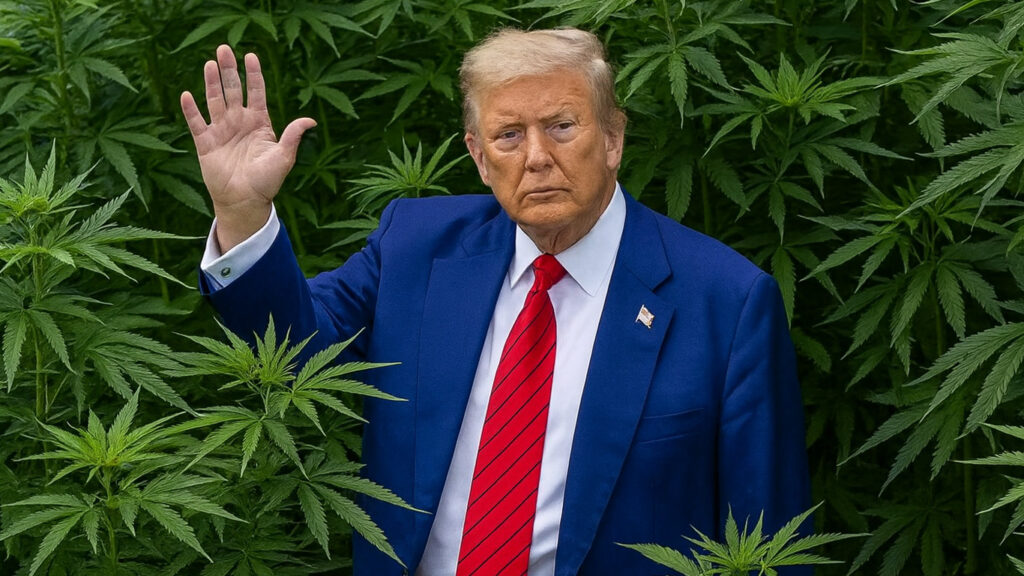
The video’s call to action is unapologetically ambitious: Educate doctors on the endocannabinoid system (ECS) – the body’s natural network of cannabinoid receptors – and extend Medicare coverage to CBD products. “You will deliver the most important senior health initiative of the century,” it declares, framing this as a legacy-defining move for Trump. Twenty percent of seniors are already turning to CBD for relief from everything from cancer symptoms to sleep disorders, the video claims, often ditching “dangerous pharmaceuticals” in the process.
Market Mayhem: Cannabis Stocks Skyrocket on Trump’s Signal
Trump’s post didn’t just spark debate – it lit a fuse under Wall Street. Cannabis stocks erupted the next day, with Tilray Brands surging over 50%, Canopy Growth and Cronos Group posting double-digit gains, and the MSOS ETF (tracking U.S. marijuana companies) riding the wave of optimism.
Analysts are buzzing: This could be the clearest hint yet that the White House is warming to cannabis reform, especially as a pending proposal to reschedule marijuana from Schedule I to Schedule III hangs in the balance.
“It’s historic – no sitting president has ever publicly pushed for Medicare to cover cannabinoids,” says Adam Stettner, CEO of cannabis-finance firm FundCanna. The endorsement aligns with broader momentum: A recent Pew Research survey shows growing acceptance among older Americans, and studies back the hype.
One new paper found CBD slashed anxiety by dramatic margins after just one week, while another highlighted its role in easing chemotherapy side effects and boosting quality of life.
| Company/ETF | Pre-Post Gain (Sept 29, 2025) | Why It Matters |
|---|---|---|
| Tilray Brands (TLRY) | +52% | Leader in CBD-infused products; direct beneficiary of senior market push. |
| Canopy Growth (CGC) | +28% | Expanding U.S. hemp operations; eyes Medicare integration. |
| Cronos Group (CRON) | +22% | Focus on wellness brands appealing to boomers. |
| MSOS ETF | +15% | Broad exposure to U.S. cannabis firms; tracks reform sentiment. |
Data sourced from market reports following Trump’s post.
The Science Behind the Buzz – And the Cautions
Let’s break it down: The ECS is like your body’s hidden thermostat for balance, influencing everything from inflammation to memory. As we age, it falters – enter CBD, which mimics natural cannabinoids to dial things back in. Research from the National Institutes of Health supports this, showing CBD’s potential to curb disease progression without the risks of opioids or statins.
But not everyone’s popping champagne.
The FDA has dragged its feet on regulating CBD since the 2018 Farm Bill, leaving a Wild West of product quality. Researchers, including those cited in a Washington Post analysis, urge caution: While promising, more rigorous trials are needed to confirm long-term safety for seniors, especially those on multiple meds.
Fox News medical analyst Dr. Marc Siegel, weighing in on The Ingraham Angle, called it a “step forward” but stressed consulting doctors to avoid interactions.
What’s Next? A Tipping Point for Cannabis in America
This isn’t just a post – it’s a pivot. Trump, who once vowed to “schedule marijuana” but later softened during his 2024 campaign, is now amplifying voices like The Commonwealth Project’s. With Congress debating hemp bans and rescheduling in flux, his nod to Medicare coverage could unlock billions: Full medical cannabis integration might save $64 billion annually in healthcare costs, per Fox News estimates in the video.
For seniors (and their families), it’s a reminder: CBD is no silver bullet, but it’s gaining traction. If you’re over 65 and battling chronic pain, talk to your doc – and maybe bookmark this as the moment Washington started listening.
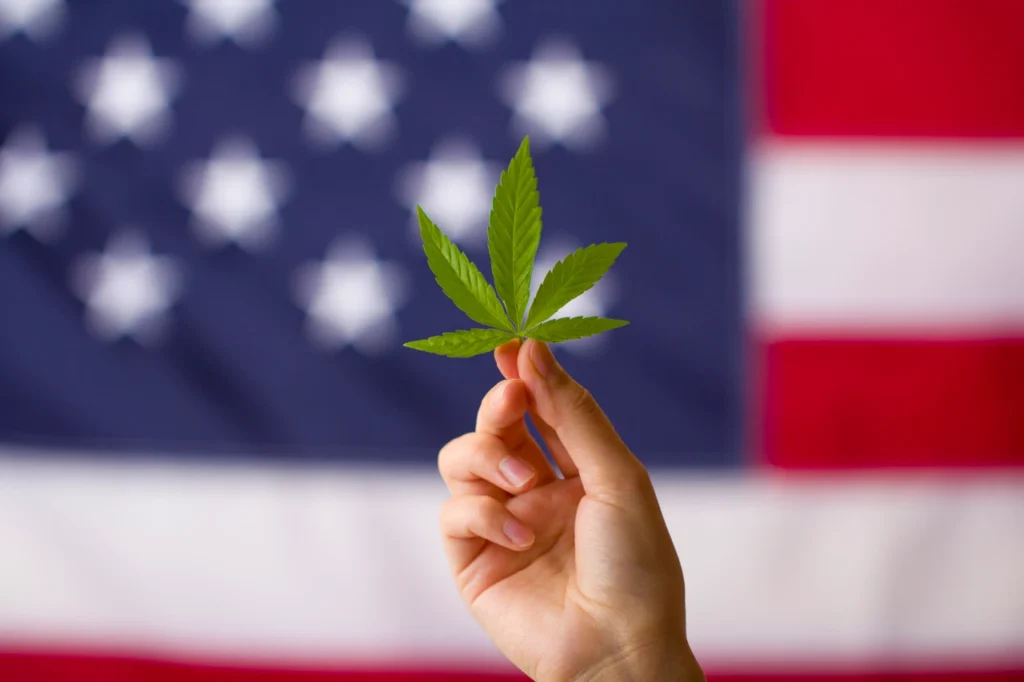
CBD Market Size in the USA
The Cannabidiol (CBD) market in the United States has experienced significant growth since the 2018 Farm Bill legalized hemp-derived CBD products, driven by increasing consumer demand for wellness, pain relief, and natural health solutions.
However, market size estimates vary across research firms due to differences in scope (e.g., total retail sales vs. manufacturing or specific sub-sectors like nutraceuticals). Below, I’ll summarize the most relevant and up-to-date projections for 2025, focusing on total market value where available.
These figures are primarily for consumer-facing CBD products, including oils, edibles, topicals, and beverages.
Key 2025 Market Size Estimates
| Source | 2025 Estimate (USD) | Scope/Notes | CAGR Projection (Post-2025) |
|---|---|---|---|
| Statista (CBD Products) | $2.57 billion | Total U.S. CBD product revenue, including oils, tinctures, edibles, topicals, and capsules sold via retail, online, and pharmacies. Anticipates slight decline to $2.55 billion by 2029 due to market saturation. | -0.20% (2025-2029) |
| Grand View Research (North America CBD, U.S.-adjusted) | ~$4.0 billion | Derived from North America total of $6.7 billion in 2023 growing at 14.2% CAGR; U.S. dominates ~80-90% of regional market. Includes pharmaceuticals, wellness, and consumer products. | 14.2% (2024-2030) |
| Precedence Research (CBD Consumer Health) | ~$10.3 billion | U.S.-specific consumer health segment (e.g., OTC products for anxiety, pain). Grew from $8.99 billion in 2024; excludes broader nutraceuticals or food/beverages. | 14.45% (2025-2034) |
| Brightfield Group (via Global Market Insights, Total CBD) | ~$7.5 billion (interpolated) | Overall U.S. CBD sales, building on $5.3 billion in 2021; focuses on nutraceuticals and wellness. Projects $16 billion by 2026. | ~25% (2021-2026) |
| IBISWorld (CBD Manufacturing) | $1.3 billion | U.S. manufacturing revenue only; excludes retail sales and imports. Grew at 9.6% CAGR from 2020-2025. | 9.6% (2020-2025) |
Explanation and Trends
- Most Conservative Estimate (Statista): At $2.57 billion, this reflects direct-to-consumer sales and aligns with post-2022 slowdowns due to regulatory hurdles (e.g., FDA delays on approvals) and market maturation. It’s a top-down model based on retail data and consumer surveys.
- Broader Consumer Health Focus (Precedence Research): The $10.3 billion figure emphasizes therapeutic uses, with strong growth in retail pharmacies (41% share) and online channels. This segment benefits from rising adoption among seniors for pain and sleep issues.
- Historical Context: U.S. CBD sales were $1.9 billion in 2022 and $5.3 billion in 2021 , showing explosive growth that has tempered recently amid competition and quality concerns.
- Sub-Market Highlights: Food and beverages alone are projected at $2.65 billion in 2025 while nutraceuticals (supplements) could reach $12-15 billion by 2034
- Growth Drivers: Legalization, e-commerce expansion, and health trends fuel expansion, but challenges like product standardization and potential 2025 tariffs could impact margins . North America holds ~47% of the global CBD market , with the U.S. leading.
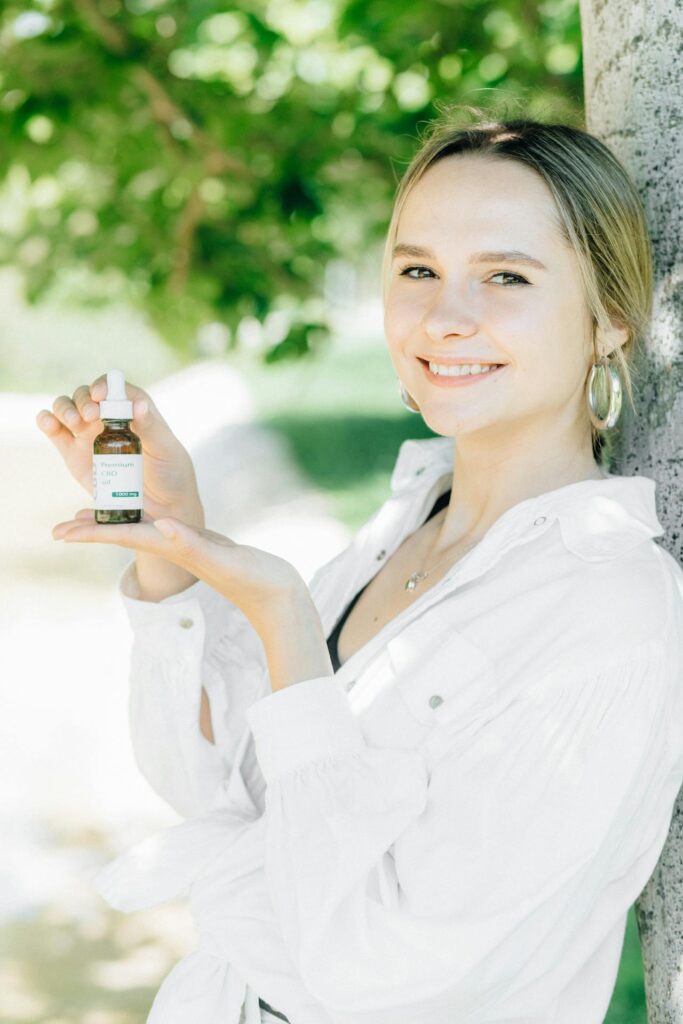
For the most accurate figure, the total U.S. CBD market in 2025 is conservatively estimated at $2.5-3 billion for core products, but could exceed $7-10 billion when including health and nutraceutical segments.
CBD Investment Decision Matrix: Legality, Products, and Capital Guidelines by US State (as of October 3, 2025)
This table serves as a clear decision-making stencil for investors in CBD companies or ventures. It focuses on hemp-derived CBD (≤0.3% THC, federally legal under the 2018 Farm Bill). Key columns:
- State: Alphabetical for easy reference.
- CBD Legal?: Yes/No for general possession/sale (No means fully prohibited; rare in 2025).
- Product Types Allowed: Common categories (Oils/Tinctures, Edibles/Gummies, Topicals/Creams, Beverages/Drinks). “All” = unrestricted; “Restricted” = THC caps, age limits (21+), or licensing; “Limited” = medical-only or non-ingestible.
- Investment Viability: High (easy business setup, low barriers); Medium (licensing required, some restrictions); Low (high regulatory hurdles, limited ops).
- % Capital Accepted: Estimated % of investment portfolio suitable for CBD in that state (based on market stability, regulatory risk, and growth potential). 100% = ideal hub; 0% = avoid. Derived from industry analyses (e.g., low in volatile states due to FDA/state conflicts).
- Key Cities for Investment: Prime locations with strong markets/dispensaries (e.g., via e-commerce, retail, or manufacturing).
Notes:
- All states allow some CBD, but ingestibles face FDA scrutiny (illegal federally in food/supplements). Investments assume compliant hemp ops; consult legal experts. Data synthesized from 2025 sources like DISA, World Population Review, Extract Labs, and Baker Institute. Risks: Banking (280E taxes), interstate transport, and potential 2025 rescheduling.
| State | CBD Legal? | Product Types Allowed | Investment Viability | % Capital Accepted | Key Cities for Investment |
|---|---|---|---|---|---|
| Alabama | Yes | Limited (Oils, Topicals; medical/low-THC) | Medium | 40% | Birmingham, Mobile |
| Alaska | Yes | All | High | 80% | Anchorage, Juneau |
| Arizona | Yes | All | High | 90% | Phoenix, Tucson |
| Arkansas | Yes | Restricted (Oils, Topicals; edibles med) | Medium | 50% | Little Rock, Fayetteville |
| California | Yes | All (food/bev allowed) | High | 100% | Los Angeles, San Francisco |
| Colorado | Yes | All | High | 100% | Denver, Boulder |
| Connecticut | Yes | All | High | 85% | Hartford, New Haven |
| Delaware | Yes | Restricted (Oils, Topicals) | Medium | 60% | Wilmington, Dover |
| Florida | Yes | All | High | 90% | Miami, Orlando |
| Georgia | Yes | Limited (Oils <0.3% THC; low-THC oil) | Medium | 40% | Atlanta, Savannah |
| Hawaii | Yes | All | High | 75% | Honolulu, Hilo |
| Idaho | Yes (0% THC) | Limited (Oils from stalks only; no ingestibles) | Low | 10% | Boise, Coeur d’Alene |
| Illinois | Yes | All | High | 95% | Chicago, Springfield |
| Indiana | Yes | Restricted (Oils, Topicals <0.3%) | Medium | 50% | Indianapolis, Fort Wayne |
| Iowa | Yes | Limited (Oils, Topicals; medical) | Medium | 30% | Des Moines, Cedar Rapids |
| Kansas | Yes (0% THC) | Limited (Oils only; no edibles/bevs) | Low | 5% | Wichita, Topeka |
| Kentucky | Yes | Restricted (Oils, Topicals <0.3%) | Medium | 40% | Louisville, Lexington |
| Louisiana | Yes | All (medical expanded) | High | 70% | New Orleans, Baton Rouge |
| Maine | Yes | All | High | 85% | Portland, Bangor |
| Maryland | Yes | All | High | 80% | Baltimore, Annapolis |
| Massachusetts | Yes | All | High | 90% | Boston, Worcester |
| Michigan | Yes | All | High | 95% | Detroit, Grand Rapids |
| Minnesota | Yes | All | High | 75% | Minneapolis, St. Paul |
| Mississippi | Yes | Restricted (Oils, Edibles med) | Medium | 50% | Jackson, Gulfport |
| Missouri | Yes | All | High | 85% | St. Louis, Kansas City |
| Montana | Yes | All | High | 80% | Billings, Missoula |
| Nebraska | Yes | Restricted (Oils <0.3%; no edibles) | Medium | 30% | Omaha, Lincoln |
| Nevada | Yes | All | High | 90% | Las Vegas, Reno |
| New Hampshire | Yes | All | High | 70% | Manchester, Concord |
| New Jersey | Yes | All | High | 90% | Newark, Atlantic City |
| New Mexico | Yes | All | High | 80% | Albuquerque, Santa Fe |
| New York | Yes | All (food/bev allowed) | High | 100% | New York City, Buffalo |
| North Carolina | Yes | Restricted (Oils, Topicals <0.3%) | Medium | 40% | Charlotte, Raleigh |
| North Dakota | Yes | All | Medium | 60% | Fargo, Bismarck |
| Ohio | Yes | All | High | 85% | Columbus, Cleveland |
| Oklahoma | Yes | All (medical) | High | 70% | Oklahoma City, Tulsa |
| Oregon | Yes | All | High | 100% | Portland, Eugene |
| Pennsylvania | Yes | Restricted (Oils, Topicals med) | Medium | 60% | Philadelphia, Pittsburgh |
| Rhode Island | Yes | All | High | 75% | Providence, Warwick |
| South Carolina | Yes | Limited (Oils <0.3%; medical) | Low | 20% | Charleston, Columbia |
| South Dakota | Yes | Restricted (Oils only) | Medium | 30% | Sioux Falls, Rapid City |
| Tennessee | Yes (<0.6% THC) | Restricted (Oils, Topicals; edibles limited) | Medium | 50% | Nashville, Memphis |
| Texas | Yes (<0.3% THC) | Restricted (Oils, Topicals; licensed retail) | Medium | 40% | Austin, Houston |
| Utah | Yes | Restricted (Oils <0.3%; no edibles) | Medium | 50% | Salt Lake City, Provo |
| Vermont | Yes | All | High | 80% | Burlington, Montpelier |
| Virginia | Yes | All | High | 85% | Richmond, Virginia Beach |
| Washington | Yes | All | High | 95% | Seattle, Spokane |
| West Virginia | Yes | Restricted (Oils med) | Medium | 40% | Charleston, Huntington |
| Wisconsin | Yes | Limited (Oils <0.3%; no ingestibles) | Low | 20% | Milwaukee, Madison |
| Wyoming | Yes | Restricted (Oils, Topicals <0.3%) | Medium | 30% | Cheyenne, Casper |
Investment Tips:
- High Viability States (e.g., CA, CO, NY, OR): Allocate 80-100% capital for retail/manufacturing; booming markets ($ billions in sales).
- Low Viability States (e.g., ID, KS, SC): Cap at <20%; focus on non-ingestible exports.
- Overall US Trend: 95% of states viable; prioritize states with hemp pilot programs for cultivation investments. Monitor FDA for ingestible approvals (potential 2026 catalyst). For YTC Ventures searches, use keywords like “CBD hemp manufacturing USA” in high-viability states.
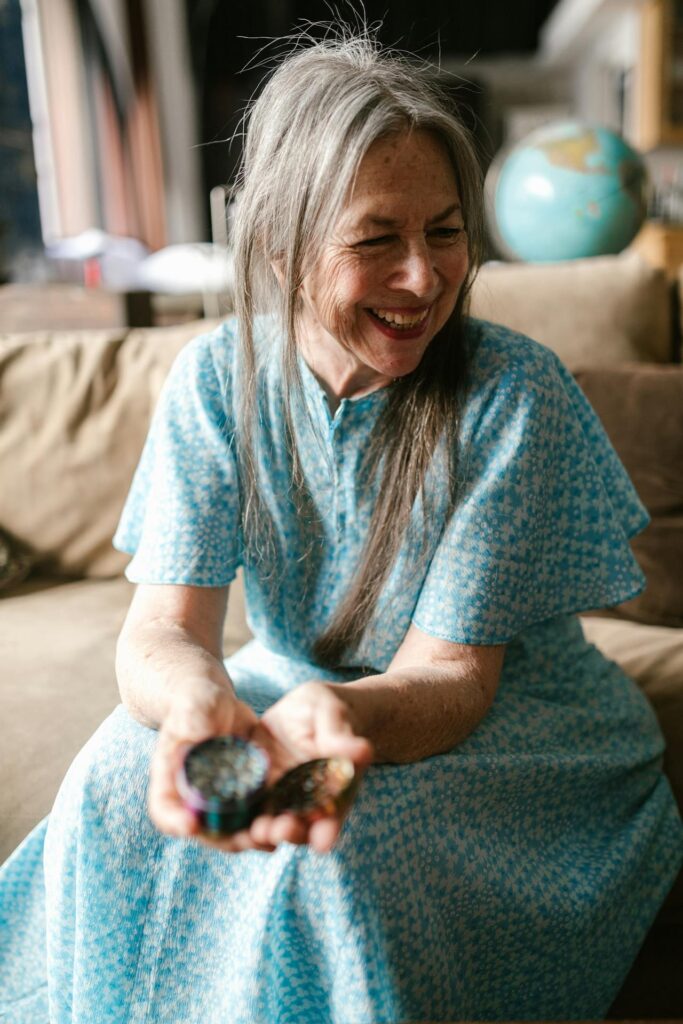
How to Invest in CBD Companies in the USA Using YTC Ventures
YTC Ventures (www.ytcventures.com) is a technology-driven investment platform specializing in B2B transactions, mergers & acquisitions (M&A), and financing opportunities for small and medium-sized enterprises (SMEs). Larger transaction is also catered by YTC Ventures.
As a fintech platform, it connects investors, entrepreneurs, and dealmakers globally, with a focus on emerging sectors like health tech, wellness, and innovative industries—making it a fitting gateway for CBD investments.
YTC Ventures exclusively list CBD deals, its searchable database includes opportunities in related areas such as nutraceuticals, consumer health products, and hemp-derived wellness businesses, which often overlap with the booming U.S. CBD market (projected at $2.5-10 billion in 2025, depending on the segment).Investing in CBD companies via YTC Ventures is ideal for accredited investors or high-net-worth individuals seeking private equity, venture-style deals, or business acquisitions in this high-growth sector.
Note: The CBD space remains federally legal under the 2018 Farm Bill for hemp-derived products (with <0.3% THC), but state regulations vary, and investments carry risks like regulatory changes and market saturation. Always consult a financial advisor and ensure compliance.
Why Use YTC Ventures for CBD Investments?
- Sector Fit: YTC Ventures platform curates deals in health and wellness, including potential CBD-infused products, hemp tech startups, or ancillary services (e.g., extraction tech or distribution). It leverages AI for deal matching, similar to how platforms like New Cannabis Ventures or Ganjapreneur facilitate cannabis funding.
- Advantages Over Traditional Routes: Unlike public stocks (e.g., via ETFs like MSOS) or direct VC firms (e.g., Altitude Investment or Entourage Effect Capital), YTC offers bootstrapped, founder-led access to underserved SME deals with lower entry barriers (starting at ₹10 lakhs/~$12,000 USD).
- Global Reach with U.S. Focus: As a Bengaluru-based platform with international ties, YTC Ventures supports U.S. deals through its network of dealmakers, especially in states like California, Illinois, and Florida where CBD operations thrive.
Step-by-Step Guide to Investing via YTC VenturesFollow these steps to source and invest in U.S. CBD opportunities on the platform.
The process is digital-first, taking 1-4 weeks from registration to closing.
| Step | Description | Key Actions & Tips |
|---|---|---|
| 1. Register and Verify | Create a free account to access the deal database. | – Visit www.ytcventures.com and sign up via email. – Verify as an investor (upload ID/proof of accreditation if required for premium access). – Subscribe to “Business CLASS” (paid tier) for unlimited searches and priority deal alerts—starts at affordable monthly fees. |
| 2. Search for CBD Deals | Use the platform’s AI-powered search to filter U.S.-based opportunities. | – Navigate to the “Buy Business” or “Investment Opportunities” section (ytcventures.com/buy-business/). – Keywords: “CBD”, “hemp wellness”, “cannabis ancillary”, “nutraceuticals USA”. Filter by location (e.g., USA), investment size ($50K+), and sector (health tech). – Example deals: Look for hemp-derived CBD startups in edibles/topicals or extraction tech firms—similar to investments by firms like Phyto Partners or Merida Capital. – Pro Tip: Set alerts for new listings; YTC adds 50+ deals monthly. |
| 3. Evaluate Opportunities | Review vetted listings with due diligence support. | – Each deal includes pitch decks, financials, and growth projections (e.g., a CBD beverage startup projecting 30% YoY revenue). – Use YTC’s “VENTURES Consulting” services (under Consulting > VENTURE Consulting) for free initial audits or paid deep dives ($500+). – Assess risks: Check for FDA compliance, state licensing, and market fit—CBD financing often faces “high-risk” banking hurdles. |
| 4. Connect with Dealmakers | Network via YTC’s ecosystem to negotiate. | – Message verified dealmakers (entrepreneurs/sellers) directly in-app. – Join virtual pitch events or webinars on emerging markets like CBD (check Technocrat Magazine at ytcventures.com for insights). – For U.S. focus: Leverage YTC Ventures global network, including Canada/UAE ties, for cross-border CBD plays. |
| 5. Secure Financing & Close | Fund via YTC’s transaction tools. | – Use integrated financing: Equity investments, loans, or M&A structuring (e.g., 20-50% stakes in a $1M CBD firm). – Escrow and legal support built-in; fees ~1-3% of deal value. – Close digitally—aim for 30-60 day timelines. – Post-investment: Track via dashboard; YTC Ventures offers exit strategy consulting. |
Potential CBD Investment Opportunities on YTC
Based on platform trends and similar sectors:
- Early-Stage Startups: Hemp cultivation tech or CBD-infused wellness brands (e.g., $100K seed rounds, 25%+ IRR potential).
- Growth-Stage Acquisitions: Established U.S. CBD retailers or manufacturers seeking expansion capital (e.g., $500K+ for scaling in legal states).
- Ancillary Plays: Non-plant-touching businesses like CBD e-commerce platforms or testing labs—lower risk, aligned with investors like Base Ventures.
YTC has facilitated 100+ deals in health-related SMEs, with users reporting 15-20% average returns in wellness verticals.Risks and Best Practices
- Regulatory Hurdles: CBD is legal federally but faces FDA scrutiny on claims; avoid “cure-all” pitches.
- Market Volatility: Stocks like Cresco Labs or Green Thumb Industries surged post-legalization but fluctuate—private deals via YTC can offer stability.
- Accreditation: U.S. deals may require SEC accreditation (net worth >$1M or income >$200K).
- Diversify: Start small (10-20% portfolio allocation) and pair with ETFs for balance.
Ready to dive in?
Head to www.ytcventures.com/buy-business/ to browse live deals, or contact YTC at investments@ytcventures.com / +91-9389376419 for personalized guidance.
Use the s
For broader CBD strategies, check Technocrat Magazine’s latest on cannabis reform.
What’s your investment budget or preferred deal type? I can refine this further!

Comments